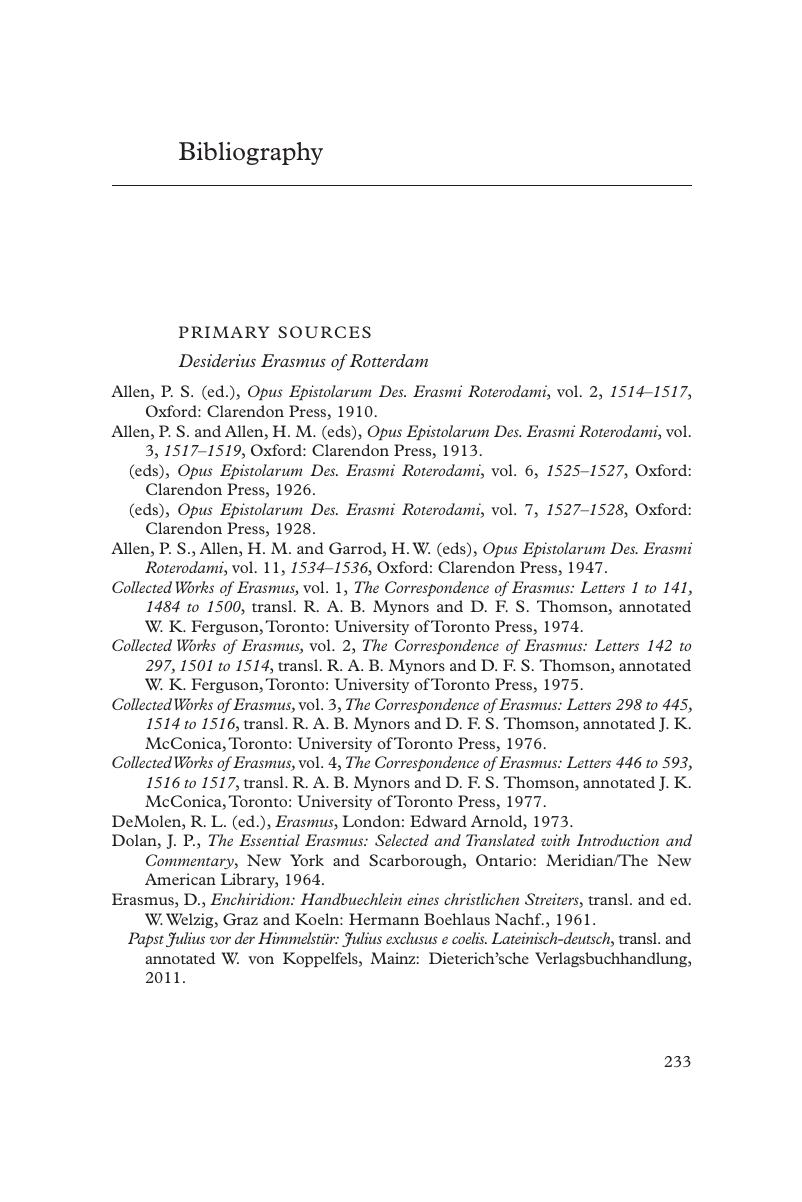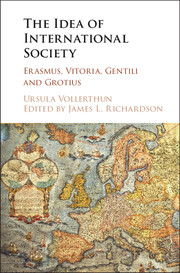Book contents
- The Idea of International Society
- The Idea of International Society
- Copyright page
- Contents
- Preface
- Acknowledgements
- Prologue: A Word about Words
- Introduction
- 1 Three Ways of Thinking about International Relations
- 2 Desiderius Erasmus of Rotterdam
- 3 Francisco de Vitoria
- 4 Alberico Gentili
- 5 Hugo Grotius
- Conclusion
- Bibliography
- Index
- References
Bibliography
Published online by Cambridge University Press: 06 October 2017
- The Idea of International Society
- The Idea of International Society
- Copyright page
- Contents
- Preface
- Acknowledgements
- Prologue: A Word about Words
- Introduction
- 1 Three Ways of Thinking about International Relations
- 2 Desiderius Erasmus of Rotterdam
- 3 Francisco de Vitoria
- 4 Alberico Gentili
- 5 Hugo Grotius
- Conclusion
- Bibliography
- Index
- References
Summary

- Type
- Chapter
- Information
- The Idea of International SocietyErasmus, Vitoria, Gentili and Grotius, pp. 233 - 246Publisher: Cambridge University PressPrint publication year: 2017

